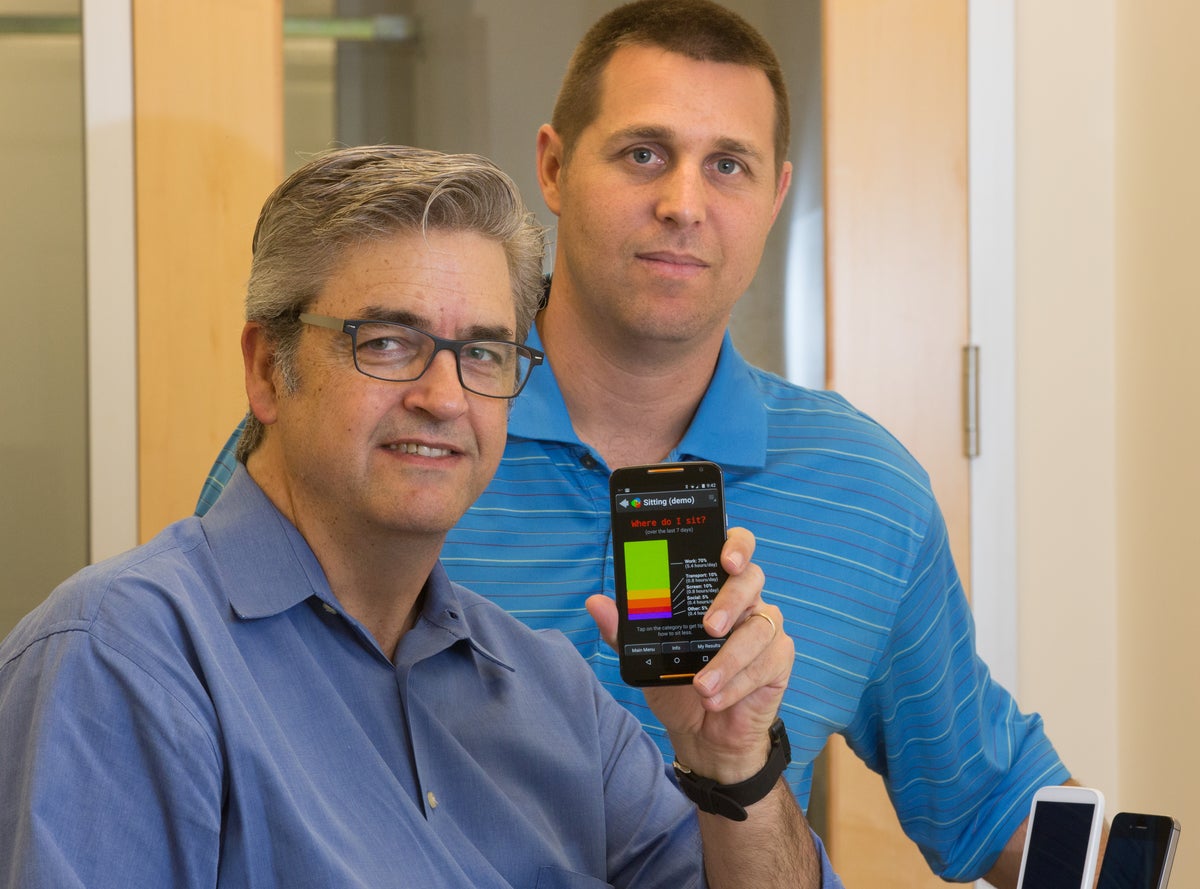Veterans can face a number of challenges when they return home from the battlefield.
Some suffer through PTSD or depression. Others grapple with sleep disorders. And many have to deal with the reality of permanent injuries.
But one trait that doesn’t get much publicity might be the most widespread and damaging of all: inactivity.
After spending years in a culture that regimented every part of the day — including physical activity — soldiers often come back to unstructured and sedentary lives. The change can lead to declining physical and mental health.
However, there could be help on the way.
A transdisciplinary team of researchers at Arizona State University’s College of Health Solutions and the College of Nursing and Health Innovation, along with the Phoenix VA Health Care System, are developing an Android-based smartphone app called BeWell24. The app is aimed at veterans who are susceptible to metabolic syndrome, which is a cluster of conditions that puts individuals at greater risk for diabetes and cardiovascular disease.
“Veterans are at high risk to all of these due to disproportional rates of obesity, and it’s driven primarily because of lifestyle behaviors,” said Matthew Buman, an assistant professor in the School of Nutrition and Health Promotion.
“They come back from deployment challenged in many ways. They have a new set of stressors in how to habituate themselves back into daily life and tend to, at earlier ages than non-veterans, develop risk factors for disease.”
A $50,000 Virginia G. Piper Charitable Trust seed grant has enabled Buman and his team to develop an app that monitors a combination of three behavioral components — sleep, sedentary behavior and physical activity — in a 24-hour cycle.
“Time is disproportionately distributed between them, and increasing time in one inevitably requires decreasing time in another,” Buman said.
ASU research software engineer Kevin Hollingshead (left) and exercise science and health promotion assistant professor Matthew Buman created the BeWell24 app for veterans.
Photos by Charlie Leight/ASU Now
Buman and Dr. Dana Epstein, chief of nursing research evidence-based practice at the Phoenix VA, just finished a pilot study of veterans ages 30 to 65. They asked vets to use the app to monitor their activity for an eight-week period, hoping that smartphone-based behavioral changes could lead to improvements in sleep, sedentary behavior and physical activity.
Preliminary findings have already shown that the app can significantly improve sleeping and activity patterns in the eight-week window.
“We know that reallocating just 30 minutes a day of sedentary time with equal time of sleep or physical activity can lead to improvements in health,” Buman said. “For example, we know that someone might have a favorite TV show they watch. We’re not asking them to not watch the show. We might suggest they get up during the commercials and perform a household chore just to get up and walk around. It’s a very common-sense approach.”
Buman said he and his team have spent almost two years developing the app, along with ASU software engineer Kevin Hollingshead, who also works in the College of Health Solutions and was the lead developer on the BeWell24 app.
The app is not ready for market and needs further development. Buman’s team will apply for a large grant from the National Institutes of Health this coming March. The grant would enable BeWell24 to be tested on a wider scale.
“The challenge is there are a lot of apps out, but we don’t know whether they actually work or not to change behavior,” Buman said. “Ours is based on principles we know are evidence-based, and that’s where we’re different.”
More Health and medicine

Working to cure cancer in our lifetime
What if we could cure cancer, or come close, in our lifetime?That’s a goal that researchers at Arizona State University’s Biodesign Institute have dedicated years of time and resources to, so that…

10 companies, 5 nations, 1 accelerator: A wide range of innovative health care solutions
The 10 companies participating in the 2025 Mayo Clinic and ASU MedTech Accelerator program hail from five different nations and are the first cohort to have representation from life science companies…

'Incredible milestone': ASU, city of Phoenix announce location for ASU Health headquarters
Citing the need for a “new way” of doing things, Arizona State University President Michael Crow said that the headquarters for ASU Health will be the hub of the university’s efforts to improve…



